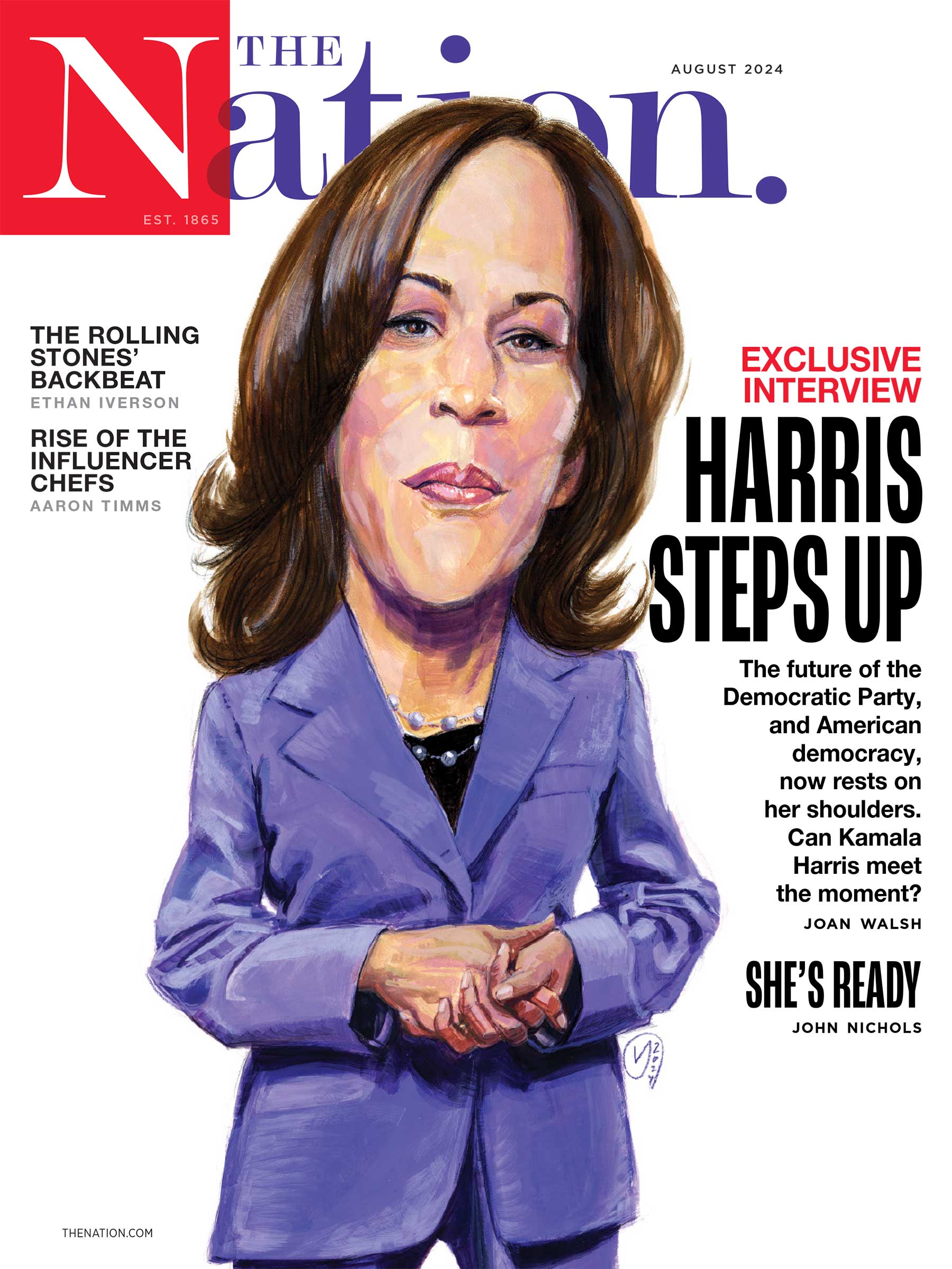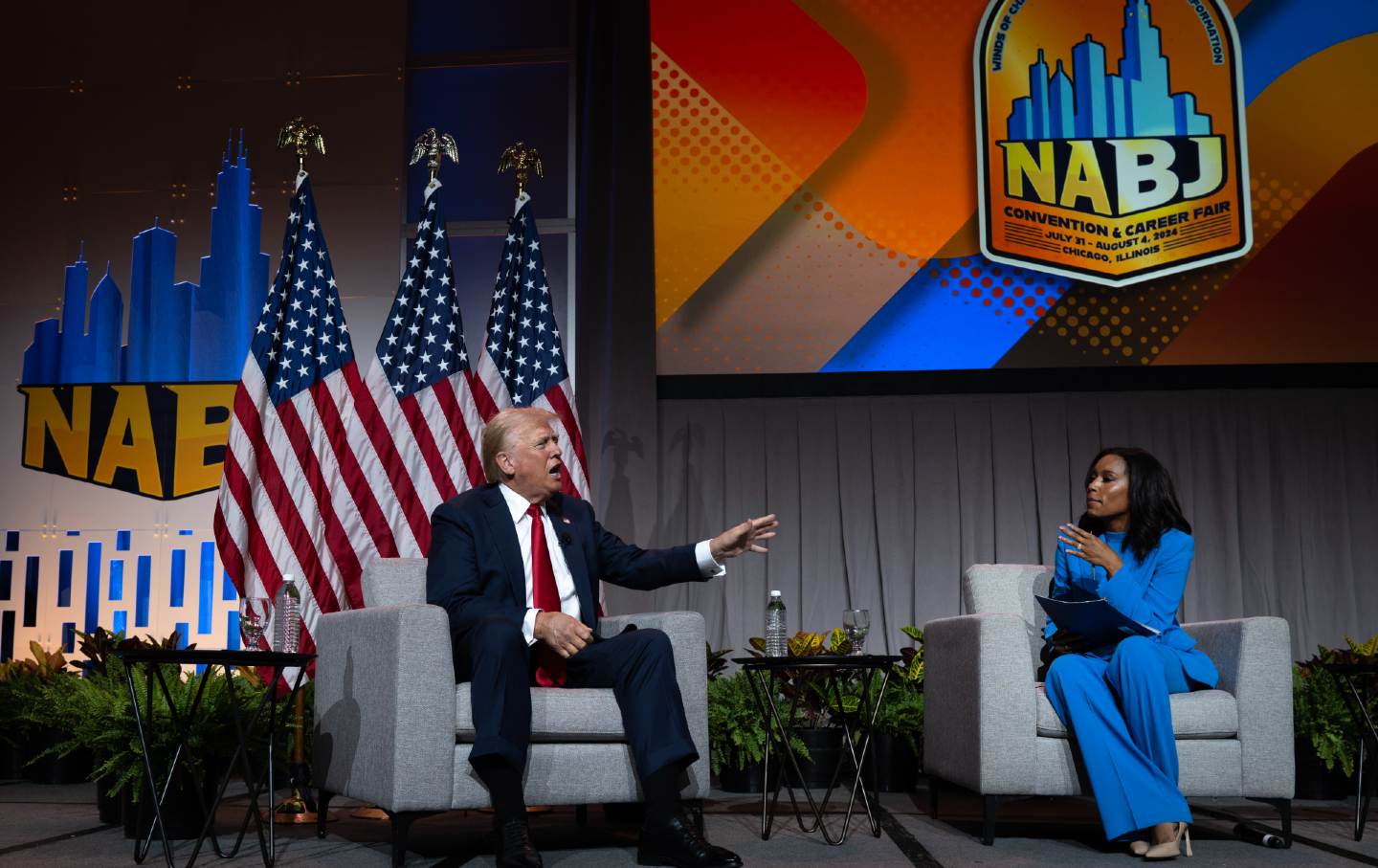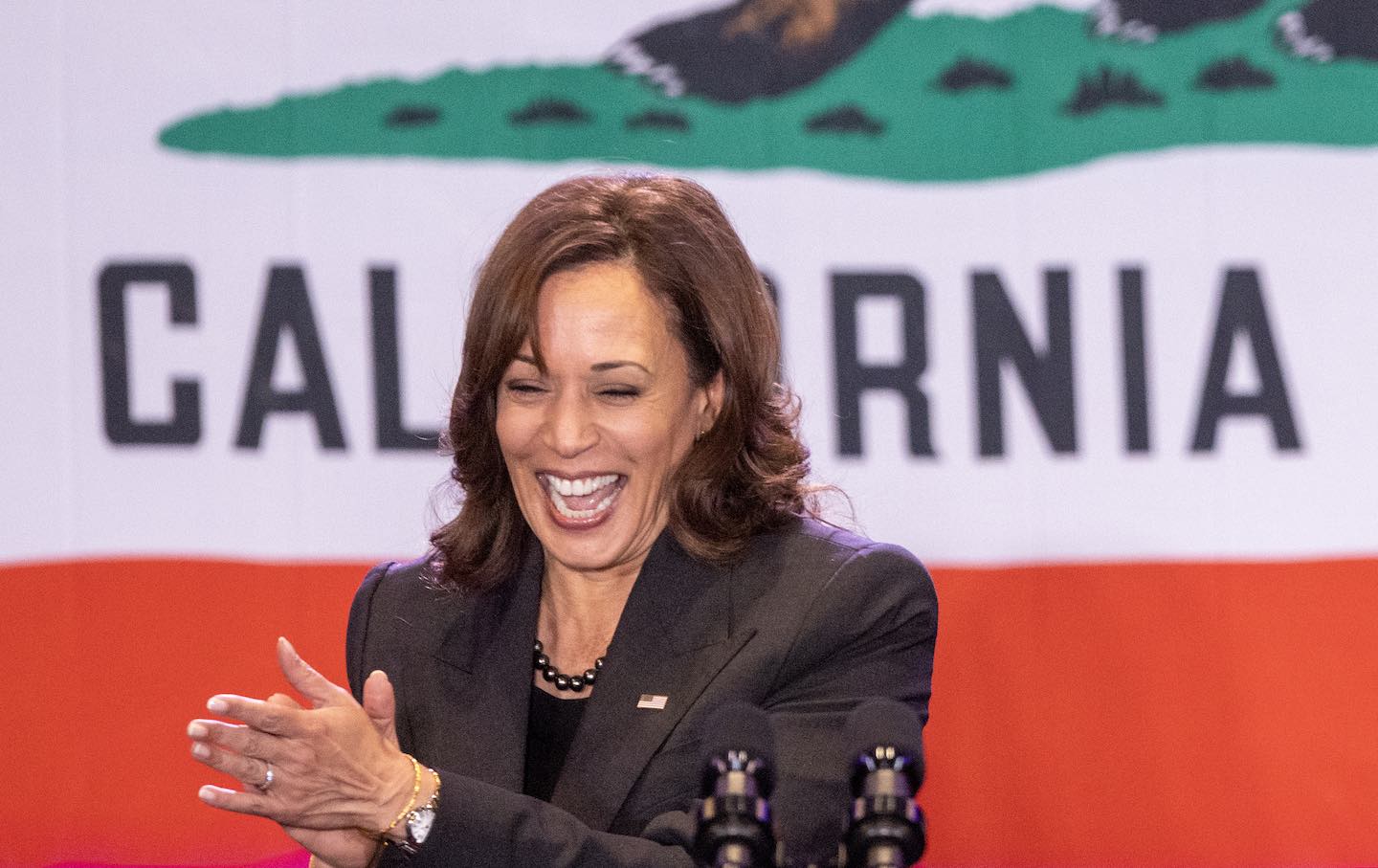Politics
/
August 1, 2024
Let’s end tipping altogether.
The Republican Party has a knack for tapping into the frustrations of people who are struggling to get by without actually helping them. GOP presidential nominee Donald Trump has offered up a new idea, for tips to be exempted from taxes. Building on that, Senator Ted Cruz (R-TX) introduced the No Tax on Tips Act in the Senate. Such knee-jerk ideas—Trump claimed he thought of it after an interaction with a Las Vegas server—do little to address economic inequality.
Tipped workers are among the lowest paid in the nation, and, depending on which state they live in, they may be entitled to less than the minimum wage. The federal minimum wage for tipped workers is an appalling $2.13 per hour—a floor that was last set in 1991.
For those surviving on the edges of our economy as a server or a food delivery driver, it may seem enticing to have tax-free tips—most GOP promises to working-class Americans are a mirage. But there is a solution that is far more equitable, that would benefit the public at large, and especially workers who currently rely on tips. While it may sound radical, what people desperately need—those who earn tips and those who pay them—is to eliminate the need for tips altogether.
A March 2024 report by the Center for Economic and Policy Research (CEPR) explains that the tipped minimum wage at the federal level is no longer linked to the minimum wage for other workers and has been frozen since 1991 because of legislation signed by then-President Bill Clinton. Because tips are expected to make up the difference between actual wages and take-home pay, as the federal minimum wage for other workers has risen, the percentage of tipped worker wages that comes from tips has risen along with it. Today, a whopping 71 percent of tipped workers’ wages at the federal level comes from what customers directly pay them.
Current Issue

If you’ve ever been lucky enough to travel outside the United States, one of the starkest differences you’re likely to notice is that tipping is not as customary as it is in this nation. There’s a good reason for our unique tipping culture. As it is with many unjust institutions, tipping has an ugly history that goes back to European serfdom and American enslavement.
“The practice of tipping is traced to the Middle Ages and the European feudal system, when masters would sporadically give pocket change to their servants,” explained CEPR’s Sylvia Allegretto. She pointed out that in “the post–Civil War period, the idea took a firm hold in the United States as employers were hiring formerly enslaved people.” In other words, the idea of tipping workers rather than paying them a fair wage grew on the backs of Black Americans and is a legacy of racist segregationist policies.
Today, Americans as a whole are struggling to make ends meet in spite of happy projections linked to Wall Street shareholder dividends. And yet we are expected to essentially subsidize our fellow workers each time we dine out, order food delivery, or even buy a cup of coffee.
The rules are arbitrary and ever-changing. For example, tips for Doordash and Uber drivers are the norm, but not for Amazon delivery workers or bus drivers. One financial adviser explained, “Customers are also increasingly prompted to tip for other services, such as car maintenance, retail stores and self-serve food, and many are feeling confused and frustrated as a result.” A 15 percent tip used to be the norm. That has crept up to 18 percent, and in some cases, even 25 percent of one’s bill.
Tips are a terrible idea for both customers and workers, but you won’t hear Trump or Cruz spell such things out. Those who cannot afford to tip generously are viewed as cruel and stingy. Those who rely on tips have to ingratiate themselves to every customer in order to be paid a fair wage. Tipped wages fuel sexual harassment and wage theft.
Tipping is also antithetical to forming a union, given that it is consistent with the hyper-individualist capitalist ethos of setting wages based on one-on-one interactions, while unionizing is about pooling resources to fight for a common good. Indeed, tipped workers are about 75 percent less likely to be in a union than other private-sector workers.
It’s not surprising then that American disgust with tipping culture is at an all-time high and that most would prefer that workers be paid a decent living wage without relying on tips. Just over half of tipped workers themselves would prefer a fixed living wage without having to deal with the indignity of shilling for tips to survive.
Proposing tax-free tips may sound like a tantalizing idea, but it will do little to address the crux of the matter, which is a serious labor issue. Instead, the main outcome of Trump’s idea would be to reduce government tax revenues—which is the ultimate Republican goal.
Doing right by tipped workers (and consumers) involves reconfiguring our economic system as a whole to ensure that no one relies on tips and that everyone has enough to live on. Grassroots campaigns such as One Fair Wage have been pushing for such a reconfiguration.
Further, Democrats introduced a bill in 2021, and again in 2023, called the Raise the Wage act, which would end sub-minimum wages for tipped workers while increasing the federal minimum wage for all to $17 an hour by 2028.
But such legislation doesn’t have the sort of surface-level appeal that Trump and Cruz’s idea does. Democrats would do well to challenge the party on why we live in a nation where tipping is the norm in the first place—a question that would likely find strong resonance among most Americans and could lead us down the path of shared prosperity for all.
Popular
“swipe left below to view more authors”Swipe →
Thank you for reading The Nation
We hope you enjoyed the story you just read, just one of the many incisive, deeply-reported articles we publish daily. Now more than ever, we need fearless journalism that shifts the needle on important issues, uncovers malfeasance and corruption, and uplifts voices and perspectives that often go unheard in mainstream media.
Throughout this critical election year and a time of media austerity and renewed campus activism and rising labor organizing, independent journalism that gets to the heart of the matter is more critical than ever before. Donate right now and help us hold the powerful accountable, shine a light on issues that would otherwise be swept under the rug, and build a more just and equitable future.
For nearly 160 years, The Nation has stood for truth, justice, and moral clarity. As a reader-supported publication, we are not beholden to the whims of advertisers or a corporate owner. But it does take financial resources to report on stories that may take weeks or months to properly investigate, thoroughly edit and fact-check articles, and get our stories into the hands of readers.
Donate today and stand with us for a better future. Thank you for being a supporter of independent journalism.
More from The Nation

In providing a platform to Donald Trump, the NABJ opted for a totally predictable outcome—35 minutes of insults and racism.
Elie Mystal

Amid many Republicans’ continued hostility to LGBTQ rights in state legislatures, Democrats call the RNC’s removal of opposition to same-sex marriage “political theater.”
StudentNation
/
Liam Beran

Bisan Owda is a Palestinian journalist, activist, and filmmaker, best known for her social-media videos documenting her experiences in Gaza.
OppArt
/
Rosa Borrás

New York’s governor has retained a firm to challenge her own attorney general’s report on her disgraced predecessor’s predations.
Column
/
Alexis Grenell

In California, Republicans have mostly lost their grip on the electorate. Harris’s presidential run has brought that attitude to the national stage.
Chris Lehmann


